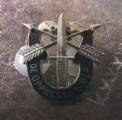I expect that the nations involved would tell us to piss off, mind our own business, and stay out of their internal affairs, and that AQ's message would be "they talk, we act".
I don't think the US tried all that hard to impose direction on the Arab Spring revolutions, nor do I think the overall outcome was unduly influenced by the US. Of course these nations will be unstable and in flux for many years to come, but that's the nature of transition out of extended dictatorship. Quite pointless to think that instability is an outcome of American action or inaction.
I do not believe that the US can undo AQs messaging by trying to supplant AQ as defenders of Muslims. That just leads to more meddling, and it will snap back on us. If we suffer the consequences of ill advised meddling in the past, the solution is not counter-meddling: we can't undo bad meddling with good meddling. We can undercut AQs message by meddling less, and by meddling more discreetly when we must meddle.
We need to understand that we will not win points with Muslim populaces by criticizing their governments. It's a hard quirk for many Americans to understand, but in much of the world even people who hate their government will rally behind it if it is criticized by a foreign power, especially if that foreign power is the US.
That's one of many reasons we don't want to get involved in Syria.
If we do get overtly involved in Syria, that would reinforce AQs message even more. Regardless of our intention, it would be perceived as American intrusion in a Muslim nation in pursuit of presumably nefarious American objectives. We can message til we're blue in the face, the Arab Street will not believe that we are acting to protect Syrians. I don't think most Americans would believe it.
Certainly it matters, but that doesn't mean they expect the US to do anything about it. It's one of those "damned if you do, damned if you don't" situations: if we stay out we're accused of standing by and watching Muslims die, if we go in we're accused of meddling for our own devious purposes. Given that there is zero domestic support for involvement, the chances of a favorable outcome look very small, there's a serious lack of credible partners to support, and very high quagmire potential, it's hard to craft a persuasive case for involvement.


 . We will still continue to slave away in hopes of achieving big changes, but will be happy with small victories when we achieve them. If you go back to work tomorrow you'll find something in your inbox I have been slaving away on the past days that actually, if approved, will be a framework for moving in this direction.
. We will still continue to slave away in hopes of achieving big changes, but will be happy with small victories when we achieve them. If you go back to work tomorrow you'll find something in your inbox I have been slaving away on the past days that actually, if approved, will be a framework for moving in this direction.





Bookmarks